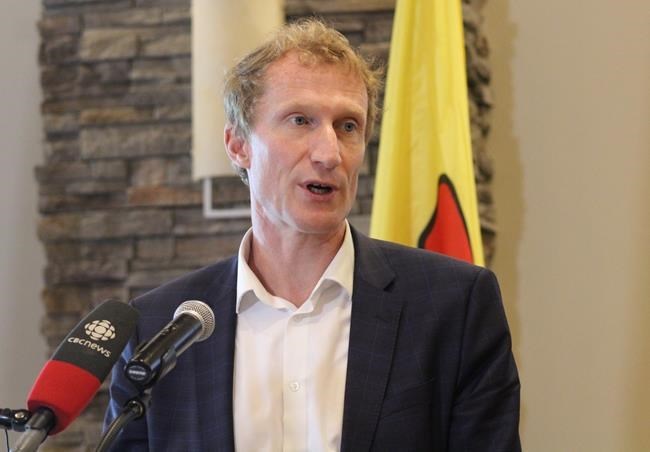WINNIPEG — Federal Indigenous Services Minister Marc Miller says he is concerned provinces that are lifting COVID-19 restrictions could lead to a Delta-driven fourth wave among Indigenous people.
Miller says many areas of the country opened too quickly last year during the second wave and it was "dangerous and devastating to many Indigenous communities."
"It’s of great concern to me," Miller said Tuesday in an interview with The Canadian Press.
Prairie provinces, where there are high populations of Indigenous people, are moving away from most of their COVID-19 restrictions.
Manitoba announced earlier this week it would end its mask mandate and remove many restrictions on businesses and group sizes this Saturday.
Saskatchewan has also dropped most restrictions put in place to stop the spread of the pandemic, while Alberta is facing criticism from health-care experts after lifting all of its public health orders.
Miller said a proper health strategy involves vaccines, awareness and continued public health measures.Â
"But that's all for not if economies open up too quickly and provinces open up too quickly," he said.Â
First Nations leaders sounded the alarm last fall when it became clear the second wave of the pandemic was having devastating effects on Indigenous people. Many reserves went into lockdown and put in measures to stop the spread.
In Manitoba, the median age of death from COVID-19 is 80 for non-Indigenous people but it's 63 for those who are First Nations. First Nations people also made up 20 per cent of the province's deaths due to COVID-19, despite making up about 10 per cent of the province's overall population.
There have been more than 33,000 positive cases on reserves — the vast majority on the Prairies.
Miller said Indigenous people are three to five times more susceptible to getting COVID-19 because of crowded living conditions and other socioeconomic determinants of health.
Some provinces prioritized getting doses of the vaccines to Indigenous people and Miller said there has been a good uptick due to the efforts of Indigenous health experts and leaders.
But, he said, there are still significant risk factors.Â
Federal officials warned last week that Canada could be on the brink of a fourth wave of COVID-19 driven by the Delta variant if the country opens too fast before enough people have been vaccinated. Dr. Theresa Tam, Canada's chief public health officer, said the more infectious variant, which first became prominent in India, is expected to gain steam among younger unvaccinated people.
Miller said a large proportion of the Indigenous population, especially on reserves, are children under the age of 12, who are not eligible to get a dose.Â
"That puts the community at risk for their mass immunization," he said.Â
"There is a real, real risk that the Delta variant ... gets into communities and spreads among the unimmunized."
Some outbreaks have begun to pop up on reserves in recent weeks. Black Lake First Nation in northern Saskatchewan went into lockdown last month amida Delta-fuelled spread in the community of about 1,600.The Athabasca Health Authority, which is responsible for the First Nation, said this week it resulted in more than 200 people being required toself-isolate.
Grand Chief Arlen Dumas of the Assembly of Manitoba Chiefs said he hoped the plans to lift restrictions would have been more cautious and involved added input from Indigenous health professionals and community leaders.Â
"I think it's really irresponsible. I think we should know better," Dumas said.Â
Dumas continued to urge caution as restrictions loosen. He saidit'snot worth the risk when children's health is at stake.
"I feel that there's light at the end of the tunnel," Dumas said.Â
"I feel there's an opportunity for all of us collectively to move forward but I think we need to be strategic and as careful as we can be."Â
This report by The Canadian Press was first published Aug. 4, 2021.
Kelly Geraldine Malone, The Canadian Press




